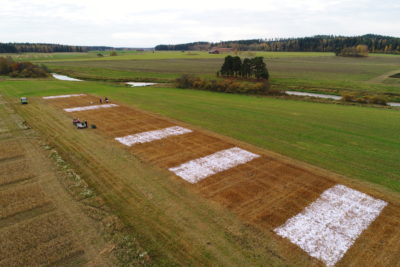Soil improving agents reduce water pollution from agri-soils
Published : 09 Dec 2021, 00:41
Soil improving agents may quickly and effectively reduce the water pollution from agricultural land, said the Natural Resources Institute Finland (Luke) referring to a study.
Gypsum, pulp mill fibre, and structural lime have been studied comprehensively, and based on the results, a practical guide has been compiled, from which farmers can learn more about the use of these soil improving agents.
Amending parcels with soil improving agents affects the aggregate structure of the soils, resulting in decreased phosphorus losses and, thus, the eutrophication impact of farming.
In addition to benefits for waterbodies, the parcels may better withstand different weather conditions. The field will dry more quickly in the spring and withstand drought better in the summer. Soil improving agents should be selected separately for each parcel.
Soil improving agents have been studied comprehensively, the studies have in 2019–2021 received funding from the Ministry of the Environment’s Water Protection Programme.
The research results have now been compiled in a practical guide, from which farmers can select the most suitable soil improving agent for each parcel.
Soil improving agents support climate-smart arable farming.
“However, soil improvement agents alone cannot permanently reduce non-point source loading. Instead, sustainable farming is based on a good soil structure, fertility, and water management in arable land”, said Juha Kääriä from the structural lime project.


